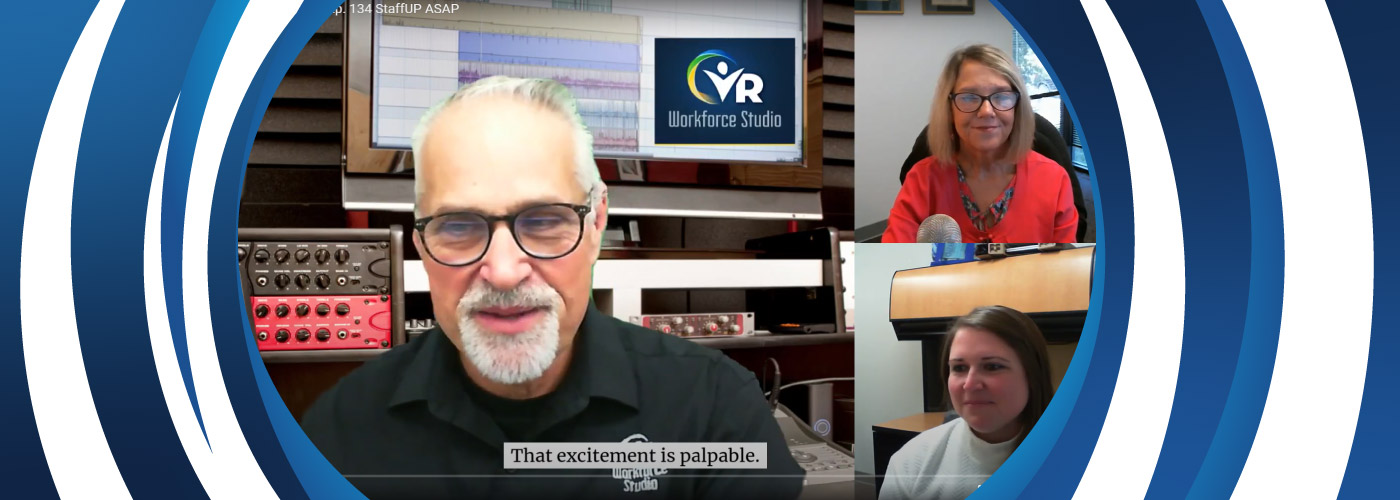In a recent Beyond 100 Voices episode of the VR Workforce Studio podcast, Beth Gaertner shared how StaffUp ASAP is helping to recruit, train, and retain the next generation of VR professionals.
For Beth and her team, the new federal grant represents years of preparation, collaboration, and commitment to the field of vocational rehabilitation. The project’s strength lies in collaboration—between SVRI, UW Wisconsin IPARRT, CSAVR, and Employment Resources, Inc. (ERI), along with the shared commitment of VR professionals nationwide.
As Rick Sizemore, host of the VR Workforce Studio podcast, put it: “You’re not just educating—you’re shaping the next generation of VR leaders.”
Listen to the full Beyond 100 Voices interview on the VR Workforce Studio Podcast.

